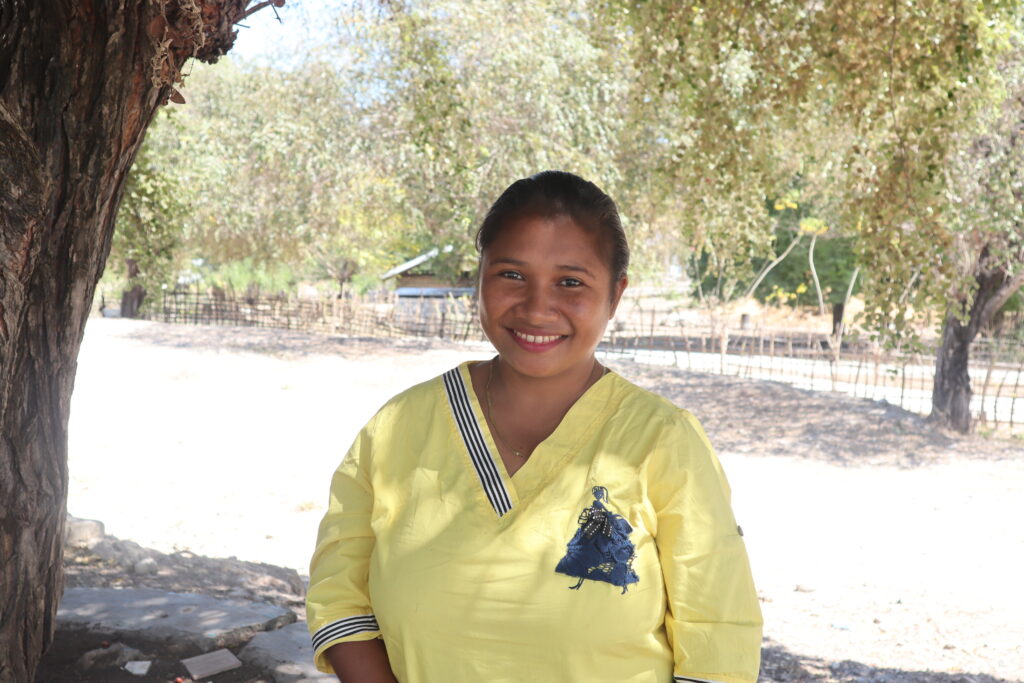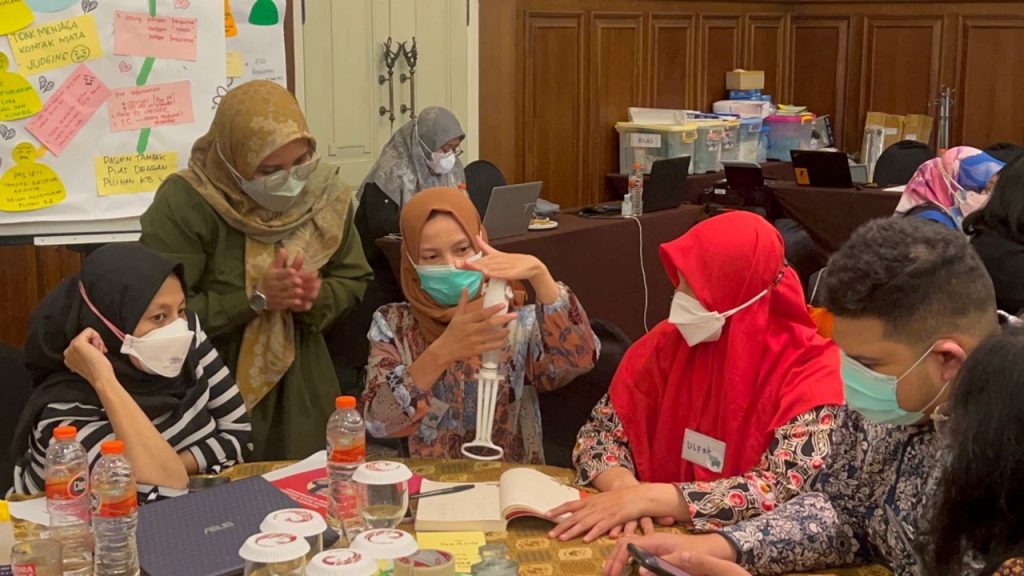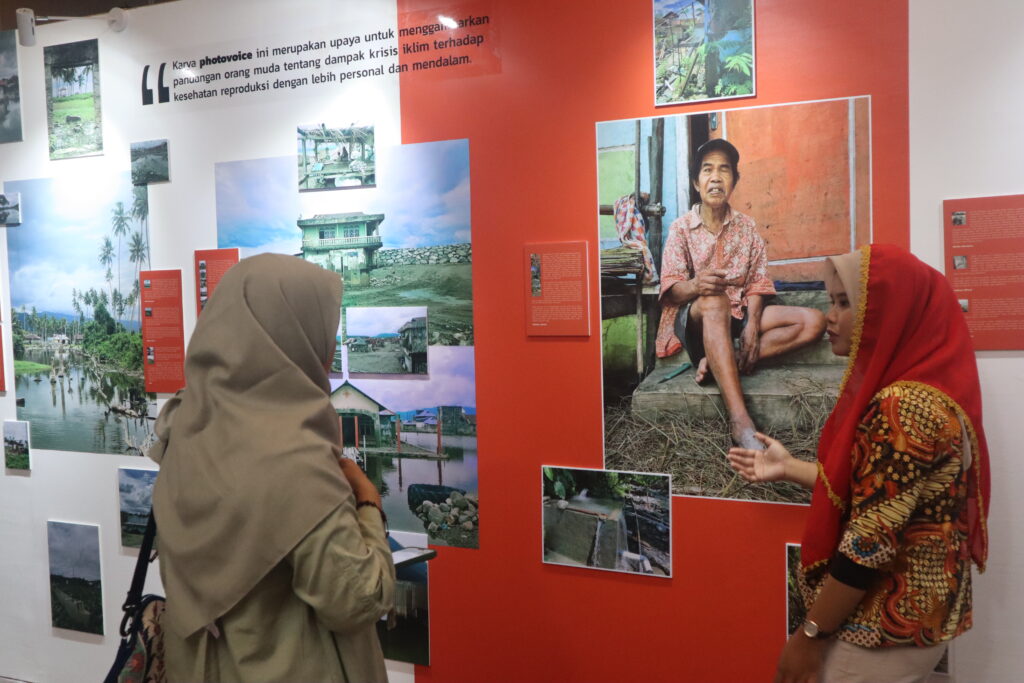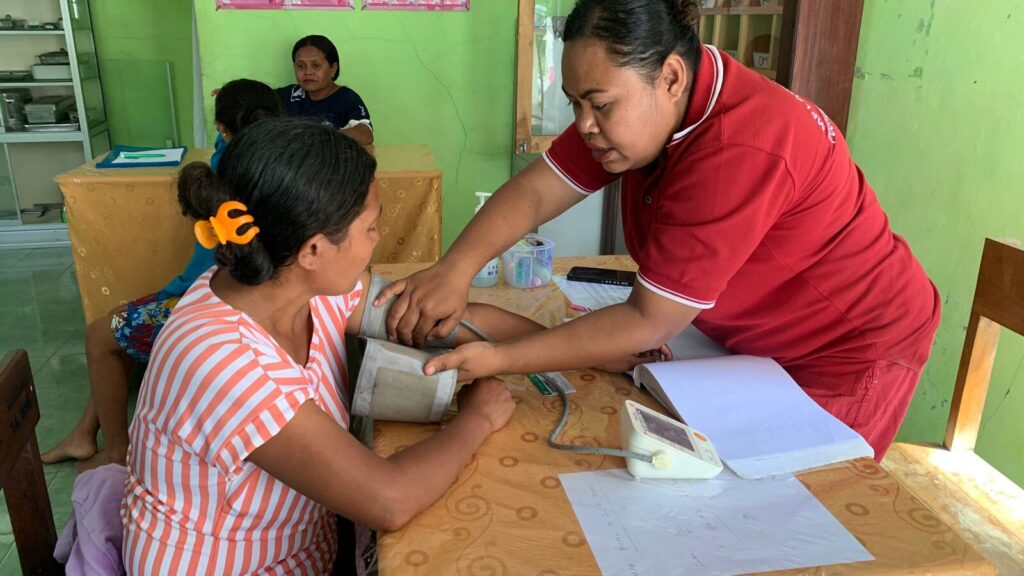Mama Mershi Benu (36) decided to opt for steady contraception or tubectomy after giving birth to her fifth child. Previously, she used injectable contraception and then switched to the pill. She finally chose permanent contraception because she ‘conceded’ after giving birth to her fourth child. This decision is not just about the type of contraceptive method, but how a woman is free to choose and plan her family.
Mama Mershi is a housewife, PAUD (Early Childhood Education) teacher and posyandu cadre in Bena Village, South Central Timor District, East Nusa Tenggara. In her daily life, she takes care of her five children at home and teaches children.
“I have been a posyandu cadre since 2015. Every month I go to the posyandu to weigh the children. Measuring the circumference of the head of the arm, weighing the child,” said Mama Mershi.

Through activities at the posyandu, she also often encourages women to maintain their reproductive health. One of them is motivating women to give birth at the health center, including about the type of contraception.
“After participating in the activities of IPAS Indonesia, we began to talk about reproductive organs, previously talking about reproduction was taboo, after the IPAS Indonesia Foundation activities, we are no longer taboo, we can talk in public,” she added.
For Mama Mershi herself, the experience of choosing contraception is very personal. “When my first child was born, I used injections every three months. I changed to the pill. Then four years later, I got pregnant with my second child. That was when the third and fourth children were taking pills, I don’t know how, maybe I got pregnant too late,” she recalled.
She revealed that when her contraceptive method failed, her husband was happy because he could have more children. “Incidentally, the first child was a girl, the second and third were boys, the fifth is a girl,” she said.
It was this experience that prompted her to choose tubectomy (permanent contraception). She then discussed the decision with her husband. “Agreed with my husband, this is the fifth child, the last child, just to be sterile. He agreed because we all work, I happen to be a PAUD teacher too so it’s complicated to take care of children, so he agreed,” she said.

She added that she learned about various contraceptive methods, including tubectomy, from IPAS Indonesia Foundation activities. One of them was a thematic discussion organized by IPAS Indonesia Foundation’s partner, CIS Timor Foundation.
“When I was pregnant, I participated in IPAS activities at the Village Hall office, there was an explanation of the types of family planning, so I chose to be sterilized,” she recalls.
She then communicated her choice when she gave birth at a mother and child hospital in Kupang in March 2024. “Incidentally, I asked for a caesarean, so I was sterilized immediately. The costs were covered by BPJS,” she said.
IPAS Indonesia Foundation, as a Partner for Reproductive Justice, would like to see more women like Mama Mershi. Women who know and are able to decide their reproductive health choices according to their needs and desires. Then, her decision is supported and the right can be accessed.
In East Nusa Tenggara, IPAS Indonesia Foundation works with the government, local partners and communities, to realize Reproductive Justice through the TAKENUSA Project (Tekad Bersama untuk Kesehatan Perempuan Nusa Tenggara). The TAKENUSA project aims to reduce maternal mortality and increase access to family planning.



